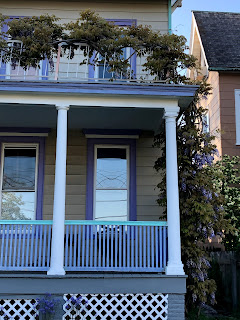"Like a mother who lost her child."
I am sure many of you would feel that way if your bicycle went missing. Whether the bike is a means of everyday transportation or has transported you across a continent, you are probably as protective of it as a parent of his or her progeny.
Patricia McNeil, a stroke survivor who lives in the Florida Panhandle, certainly is feeling such a loss. Her black Trek took her across the country twice and served as her sole means of transportation. In Florida, the latter is really saying something and is one reason why she logged over 40,000 miles on it in two years.
She left her machine in the foyer of a local Target. It's not the first time she parked her bike there and whenever she left the store, she retrieved her bike--until last Wednesday, that is.
Security footage confirmed that the bike was indeed stolen--by a local male who "looks like actor Paul Walker" and has a sleeve tatoo on his left arm. It sounds to me that he knew about McNeil and her bike and the theft was a crime of opportunity.
Anyway, I hope he is apprenhended and Ms. McNeil gets her bike back. Nobody deserves to lose her child.
I am sure many of you would feel that way if your bicycle went missing. Whether the bike is a means of everyday transportation or has transported you across a continent, you are probably as protective of it as a parent of his or her progeny.
Patricia McNeil, a stroke survivor who lives in the Florida Panhandle, certainly is feeling such a loss. Her black Trek took her across the country twice and served as her sole means of transportation. In Florida, the latter is really saying something and is one reason why she logged over 40,000 miles on it in two years.
She left her machine in the foyer of a local Target. It's not the first time she parked her bike there and whenever she left the store, she retrieved her bike--until last Wednesday, that is.
Security footage confirmed that the bike was indeed stolen--by a local male who "looks like actor Paul Walker" and has a sleeve tatoo on his left arm. It sounds to me that he knew about McNeil and her bike and the theft was a crime of opportunity.
Anyway, I hope he is apprenhended and Ms. McNeil gets her bike back. Nobody deserves to lose her child.
















